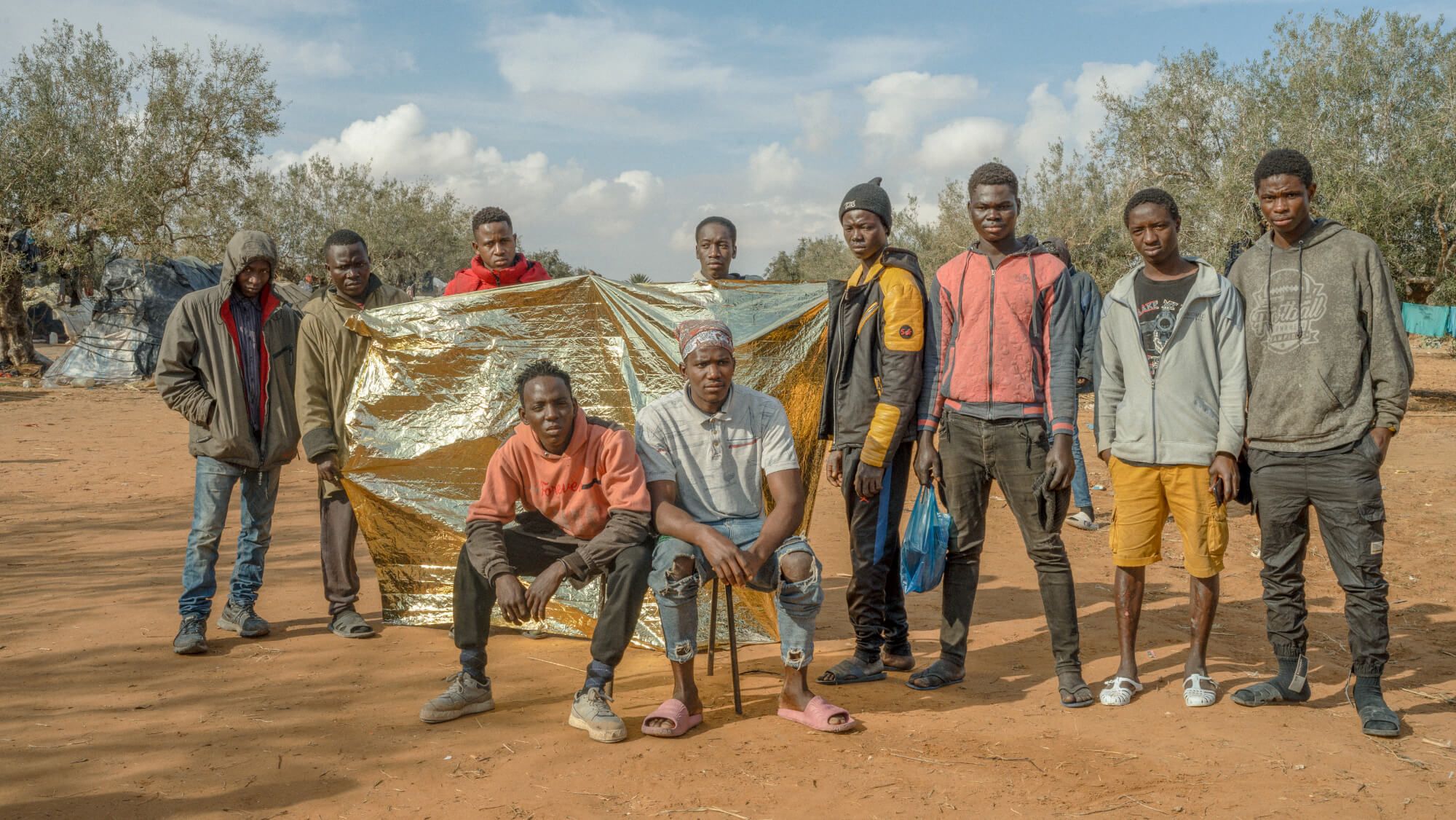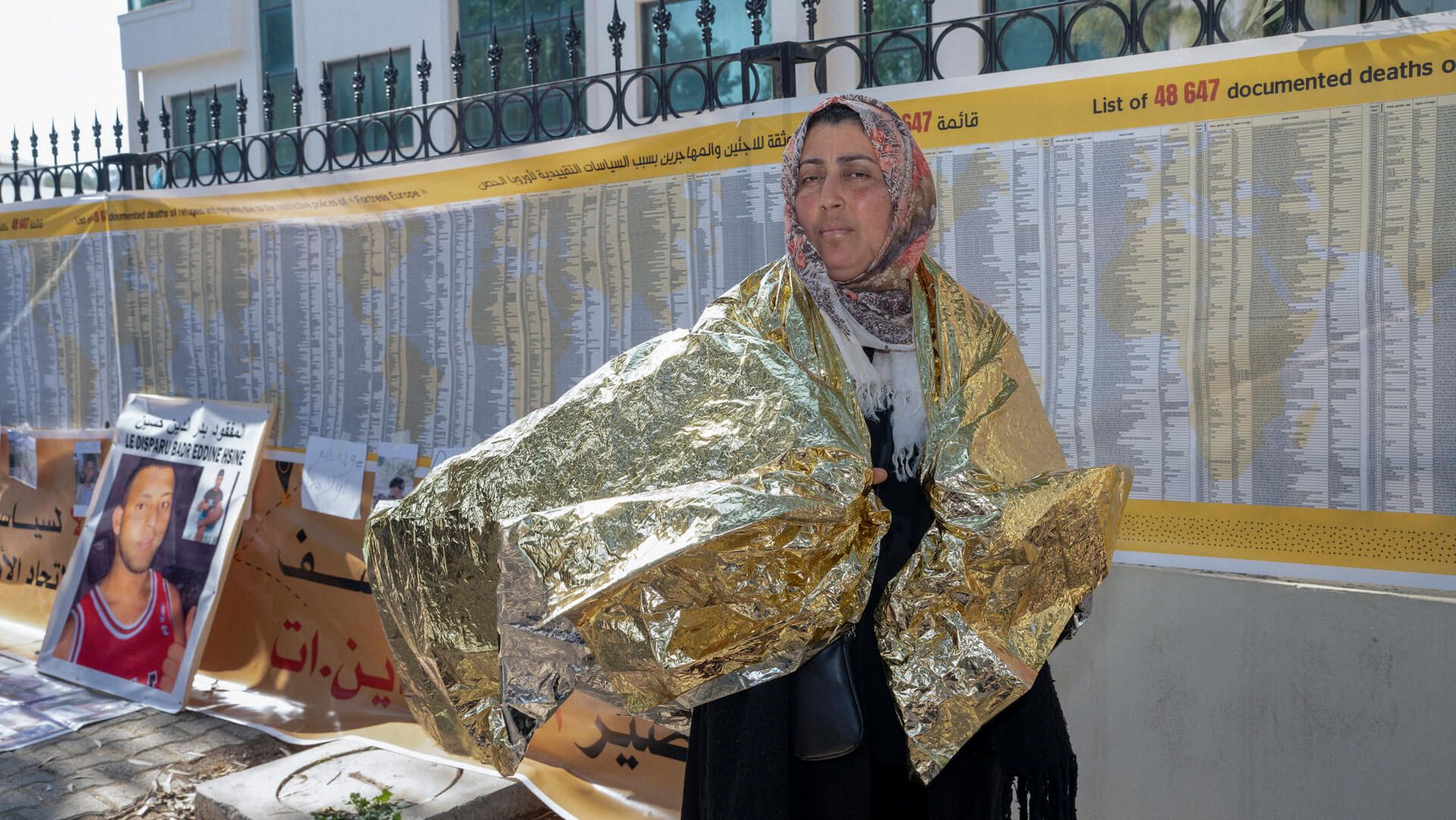Italian Embassy, Tunis. Clear sky, heavy hearts.
At 10 o’clock this morning, around ten Tunisian families of those missing at sea, led by Imed Soltani, the charismatic leader of the association “La Terre pour tous,” are preparing their “battlefield”.
Side by side, photographs of the missing young men are displayed alongside flags of Palestine, symbolizing the struggle for all children. Last night and today, hundreds of protesters took to the streets of the capital as part of a national movement against the Israeli army’s attacks targeting Palestinian civilians.
The objective of this demonstration is to call upon the Italian embassy to get answers about relatives missing in Italy or in Italian waters for months. Despite constructive exchanges with the ambassador and signs of support, the families of the missing condemn the silence of the State. The cries of the protesters echo: “Where are our boys?” Under the suspicious but then understanding gaze of the police, I set up an impromptu ‘video booth’ —a video installation— with a survival blanket as a backdrop. This ‘video booth’ serves to leave a mark, to create a registry of the missing individuals humanizing them, allowing families to express themselves freely.
With my team —Hamza, Alya, and Dhia, who take turns framing the image, introducing the topic, and translating— we aim to create a breach in the wall of silence. Our goal is to encourage families to share their efforts to find their missing relatives and also to narrate their resilience. This highlights how much the official silence impacts these families.
“We simply want to know about their whereabouts, whether they are dead or alive. I swear we will even accept death,” confide Mahmoud Ghbantini’s parents in unison. Mahmoud disappeared on October 31, 2019. They have traveled nearly 550 kilometers to attend today’s demonstration.
“It is not normal to detain a person for four or five years without granting them the right to contact their family. He is not a criminal!,” asserts the family of Oussama Al-Saïd, supposedly held in Italy since 2019. His relatives present evidence to support their claims.
“Indeed, the truth is bitter, but we have accepted it for twelve years. We simply seek clarification,” corroborates Hajer, a member of the Mem.Med association based in Palermo, wearing a T-shirt with the images of her two children. They disappeared at sea or on Italian soil in March 2011 under strange circumstances along with numerous Tunisian compatriots.
At the end of this day of protest, the “video booth” is a success. The enthusiasm is unanimous. The next step is uploading their messages on the platform you are currently reading, Message in a Bottle. Bottles are launched to bring this political and artistic tool to life, created on the streets alongside families and activists — including my own family.











